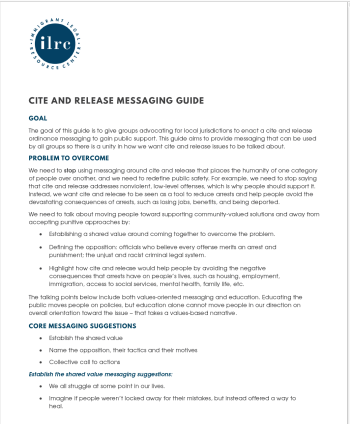
As groups across Texas advocate for cite and release policies in their own localities, it has become increasingly important that we utilize values-based messaging in our campaigns. This guide, available in multiple languages, provides messaging recommendations to ensure there is unity in how we talk about cite and release. It provides suggested language to ensure inclusive messaging that uplifts the dignity and humanity of all community members, regardless of criminal history.
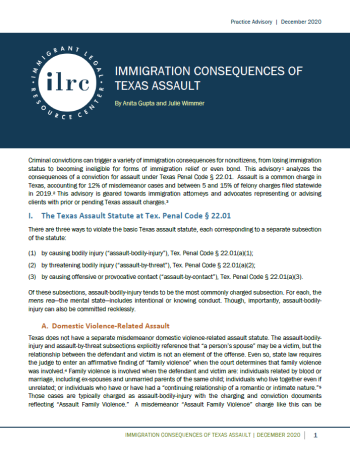
This practice advisory explains the various immigration consequences of a conviction for Assault under Texas Penal Code § 22.01 and provides tips for mitigating such consequences in criminal proceedings. This August 2022 update includes analysis of the Texas Assault statute in light of the Supreme Court’s decision in Borden v. United States. The Texas Assault statute is complex and includes several subsections, so we have included a chart in the appendix describing the potential immigration consequences for each subsection of the Texas Assault statute.
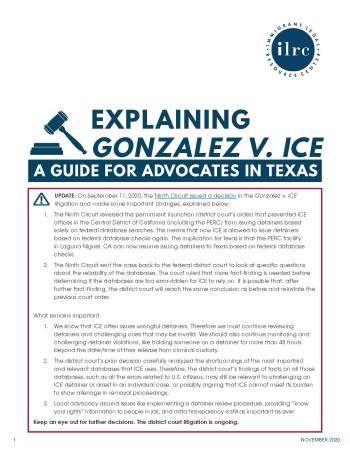
This resource includes an update regarding the ongoing Gonzalez v. ICE federal litigation. On September 11, 2020, the Ninth Circuit issued a decision which includes some important changes to the February 2020 Central District of California federal court order. We have included an update on the first page which discusses what has changed, followed by information from our April 2020 resource. Please note that some of the information in our April 2020 resource related to the previous district court order is no longer applicable.
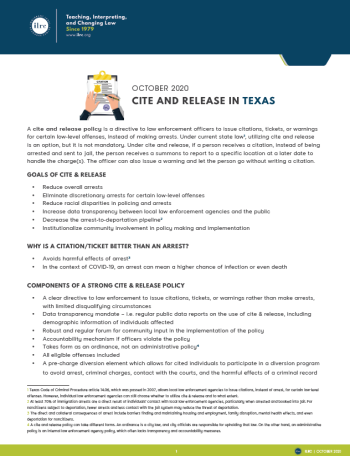
A cite and release policy is a directive to law enforcement officers to issue citations, tickets, or warnings for certain low-level offenses, instead of making arrests. This resource provides a general overview of cite and release policies, including the goals and benefits of cite and release, the components of a strong policy, the eligible offenses under Texas state law, and examples of local policies across Texas.
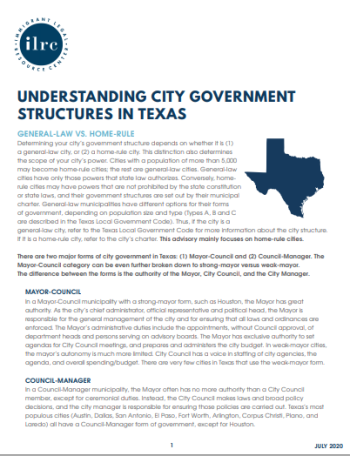
Before pushing for change at the city level, it is important to understand your city government’s structure, as well as the responsibilities and powers of elected and appointed city officials, such as the Mayor, City Council, Police Chief, City Attorney and City Manager. This resource is for Texas advocates and explains the differences between the two major forms of city government in Texas, the powers of important city officials, and how various forms of city government affect the roles of those officials.
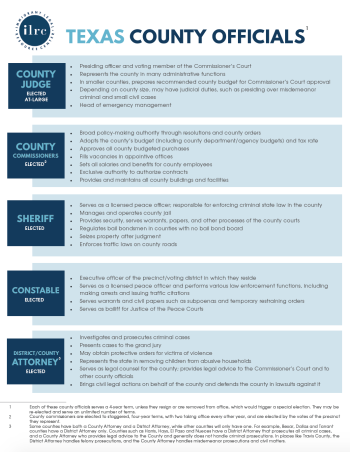
Before pushing for change at the county level, it is crucial to understand the powers and responsibilities of different county officials and bodies. This resource is for Texas advocates and explains the authority and jurisdiction of various local elected county officials in Texas.
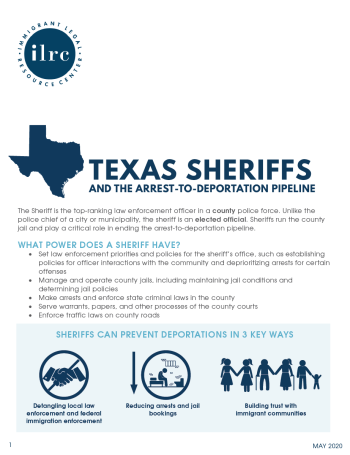
As a local elected law enforcement official and operator of county jails, Sheriffs play a critical role in ending the arrest-to-deportation pipeline. This advisory for advocates in Texas explains the power of county sheriffs, and measures they can take to reduce the number of people being funneled into the deportation pipeline, without violating state laws like SB 4.
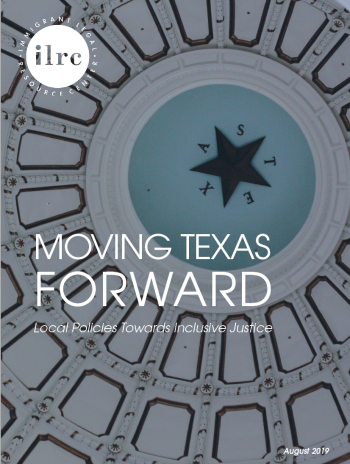
Moving Texas Forward: Local Policies Towards Inclusive Justice was created for the many organizations and elected officials in Texas that are struggling to find solutions to disrupt the harmful arrest-to-deportation pipeline. Texas has helped deport more people than any other state. In fiscal year 2017, more than 395,000 people, or 17% of all deportations nationwide, were deported from Texas. Texas’ role in the detention and deportation of immigrants has increased under the Trump administration and will continue to increase because of SB 4. This guide attempts to provide a comprehensive and thorough look at some of the ways advocates, policymakers, and local law enforcement can work together to minimize the arrest-to-deportation pipeline.